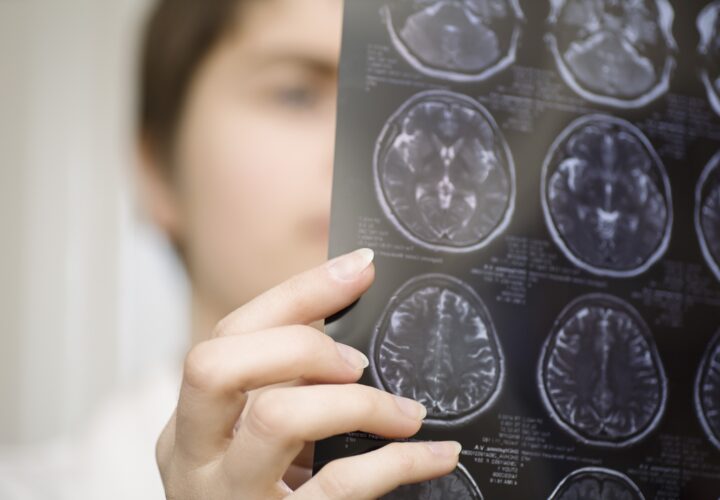A national survey highlights people's concerns about the stigma of being diagnosed with Alzheimer's.
The first thing most Alzheimer’s patients do when they get a diagnosis? Pretend like nothing happened.
“They call it the Alzheimer’s closet,” said 54-year-old Laurie Carly Webb, who was diagnosed with early-onset Alzheimer’s at 52.
She said that fear of the disease is so strong that first her husband, then her doctor brushed off her concerns when she started experiencing cognitive problems.
“No one wants to admit their spouse may have it, and at first he said, ‘No, you don’t; it’s just a bad day.'”
Alzheimer’s stigma runs deep. So much so, that people are not only afraid of getting tested for the disease; they’re also afraid of revealing their genetic likelihood for developing the disease, even though a quarter of the population has a copy of the gene associated with an increased Alzheimer’s risk.
“We need to reduce the stigma to encourage persons with
mild or even no symptoms of Alzheimer’s disease
to enroll in prevention trials to find effective treatments.”
But the stigma of Alzheimer’s isn’t just difficult for patients emotionally — it also prevents people from seeking treatment that might allow them to function better for a longer amount of time, and prevents them from enrolling in clinical trials that are seeking a cure for the disease, according to a new study.
“We found that concerns about discrimination and overly harsh judgments about the severity of symptoms were most prevalent,” said Shana Stites, from the Perelman School of Medicine, University of Pennsylvania. “By understanding what the biggest concerns are about the disease, we can help develop programs and policies to reduce the stigma about Alzheimer’s disease.”
In a national survey, 317 people were asked to read a description of a person with mild Alzheimer’s. When researchers asked the participants questions about what they read, over half said they expected the person would be discriminated against at work and left out of their own medical decision-making. Almost half thought that the person’s medical insurance would be limited because of what was recorded in their medical record, brain imaging result or genetic test result. When the participants were also told that the person’s cognition would worsen over time, those percentages increased.
Even though the Genetic Information Nondiscrimination Act of 2008 protects against insurance discrimination based on genes, the survey results suggest that people are still wary about documenting information about Alzheimer’s test results or medical records.
Perspectives on Living With Dementia: ‘I Have Dementia
and This Is How I Want To Be Treated’
However, when participants were told that the person’s condition would improve, 24 to 41 percent of those surveyed thought the patient would experience discrimination. What that shows, according to experts, is that advancements in how Alzheimer’s is treated could relieve some of the stigma that bars patients from entering trials that focus on prevention.
How To Talk to a Person With Dementia: ‘I’m the
Very Same Person You Knew Before’
“The unfortunate stigma associated with Alzheimer’s may prevent people from getting the diagnosis they need or the opportunity for early intervention that could improve their quality of life,” said Maria C. Carrillo, Ph.D., Chief Science Officer, Alzheimer’s Association. “We need to reduce the stigma to encourage persons with mild or even no symptoms of Alzheimer’s disease to enroll in prevention trials to find effective treatments. These survey findings could also have implications on the national goal of developing an effective therapy by 2025.”
This study was published in the journal Alzheimer’s & Dementia: The Journal of the Alzheimer’s Association.



